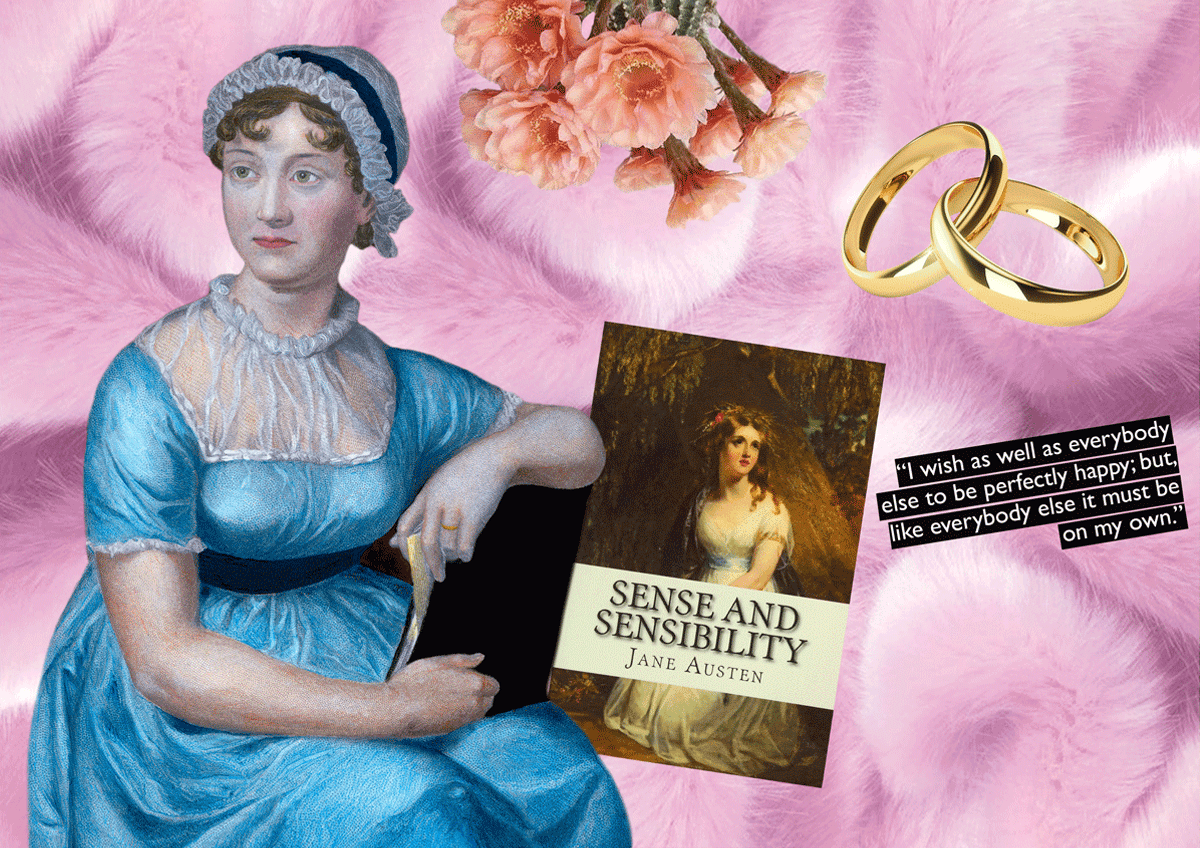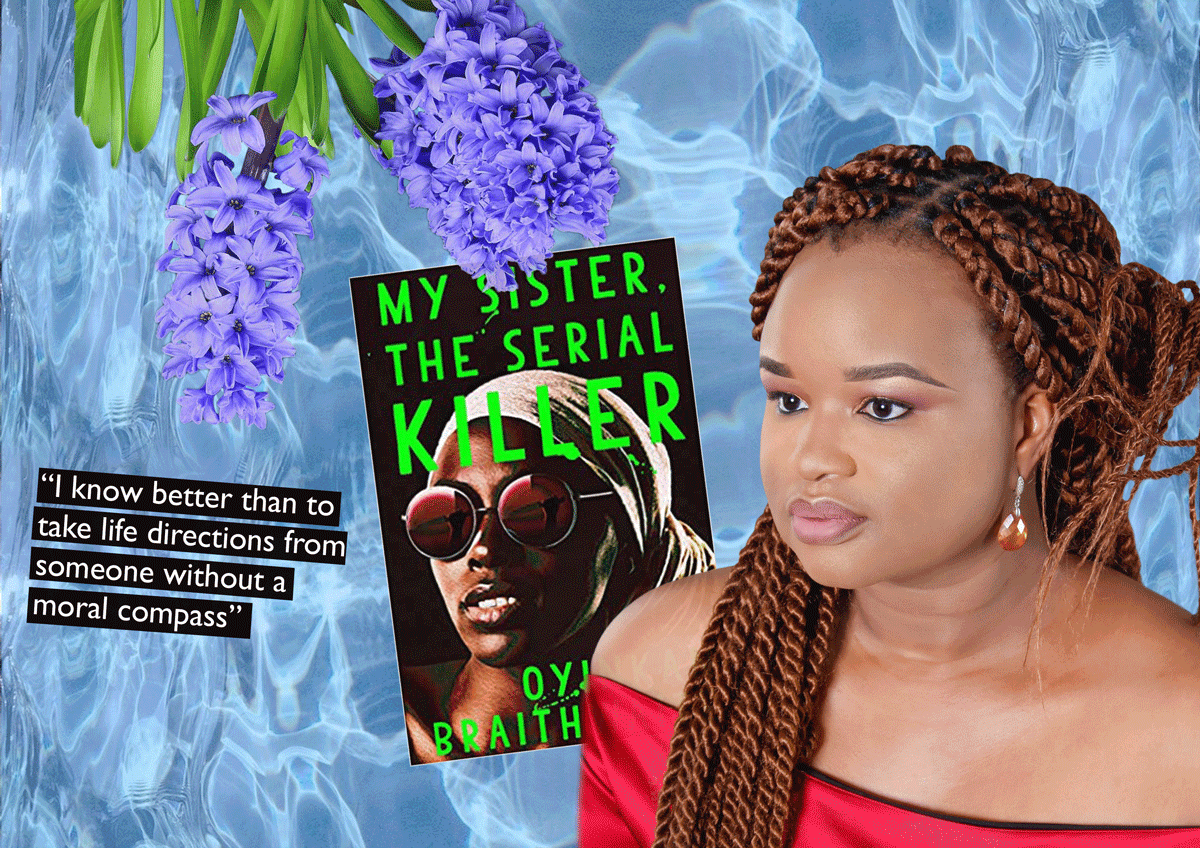Notes From An English Literature Graduate Who Should Have Tried Harder
A Comparative Book Review of Jane Austen's Sense and Sensibility and Oyinkan Braithwaite's My Sister The Serial Killer19 May 2020
If the title wasn’t already abundantly clear—my name is Maddy, and I am an English Literature graduate who should have tried harder.
My decision to study English Literature was formed under the shaky guise that, “I quite like books and I’m too lazy to do history.” What resulted were four years of turning up to seminars woefully unprepared—armed with nothing but a cursory glance at a Sparknotes summary page on my wander into campus. It was odd, because “I actually really love reading,” I’d protest to irritated parents and confused friends. Things reached boiling-point one evening when my boyfriend, on seeing me stare blankly at the first page of The Mill on the Floss for over five minutes, tentatively asked: “Are you sure you actually know howto read?”
I wish I could say that my wasted university hours were lost to the hedonistic endeavours of youth. The sort of student experience where seminars are traded in for darkened house-parties that begin on Saturdays and bleed into Mondays. Behaviour that is still wholly stupid, but at least looks cool. If only. Instead, I suffered from what might be medically termed as ‘an allergic reaction to having absolutely no adult supervision and also being chronically useless’. Overwhelmed with freedom, I squandered my young-years watching YouTube videos in dingy living rooms, laughing at Daniel Radcliffe Being Weird For 8 Minutes Straight, while I picked at my Deliveroo and wondered where the afternoon had gone.
Looking back on it now, I see it for what it probably was: a colossal waste of money, and a grossly cocky faith in my ability to pull things off at the very last minute. But at the time it felt wonderful. The long evenings spent in tiny student kitchens with friends, eating slice of toast after slice of toast, and chatting about the minuscule things that filled our miniature student lives. I wouldn’t change those moments for all the modernist novels in the world—but if I could do it all again, I might have just read a little bit more.
Anyway, the point of that spiel was to say this: I didn’t make the most of my degree, and now I feel like a total moron. In order to combat the burgeoning sense of shame that surrounds my academic laziness, I’ve decided to revisit those classic texts that haunted me for four years of my life.
However, because I am an English student who has been socially-conditioned to compare and contrast everything she lays her eyes on, I have set several essay-like parameters for this undertaking:
- I will read not one, but two books, one modern and one from the canon. For those unaware, the “literary canon” refers to a collection of texts that have been crowned “classics”. Due to a series of racial, social and historical biases, these works nearly always belong to long-dead white-men (think Charles Dickens and Shakespeare), and the occasional white-woman (Jane Austen and all the Brontës). This is not to say that these “classics” are not valuable or sometimes extraordinary (I would literally take a bullet for Jane Eyre), it is more that the idea of an exclusive group of ancient texts dictating modern education is boring and absurd. The longer we obsess over these authors, the longer we reinforce the message that it is mostly white western writers who are worthy of our reading and study.In short—this so-called “canon” could do with an intersectional refurb, which is where I come in.
- The books I have chosen must be loosely—and I stress loosely— linked by a common theme. This way I can evaluate the two works in tandem, thinking about the ways in which the themes intersect over time (or, more likely, the ways in which they don’t).
- To mimic my degree more closely, all the books will be fictional. Also, if I struggled to read fiction, I am almost certainly not capable of wrapping my head around the complexities of non-fiction.
- I will never include Ulysses in this series, not because it is too long, but simply because: I do not want to!!!!! ! !! ! !!
Which leads me to my first comparison. The novels: Jane Austen’s Sense and Sensibility and Oyinkan Braithwaite’s My Sister The Serial Killer, and the theme: ‘sisters’. Sisters have been on my mind a lot recently. This may be due to the fact that I am entering the seventh week of lockdown with my own. And, as my sister and I flit between arguing over whose running leggings are whose, to lying in bed singing YouTube karaokes, I feel increasingly certain that sister-relationships are some of the most complex and steadfast on earth. It’s no surprise then, that seeing this wonderfully complicated sibling-dynamic in written form, makes for good reading. So, without further ado, the novels:

Sense and Sensibility by Jane Austen, 1811.
As someone who once spent £3.99 on a bar of novelty Jane Austen soap—lazily punned ‘Suds and Sensibility’—I feel an enormous shame in admitting I had never actually read Austen’s debut novel. This is a deeply detrimental admission both for my personal brand (I have spent years positioning myself as a 21st Century Lizzie Bennet, see: the soap) and academic credentials (I wrote my dissertation on Pride and Prejudice), but, two birds, one stone I suppose. Anyway, I already knew I liked Austen’s style, so I suppose this was a cunning way of easing myself back into the canon. And wow. What a return it was! I am biased (may I refer you once more to the soap), but Jane Austen is unequivocally, the funniest writer to have ever lived.
Sense and Sensibility takes place in Devon, following the lives of the Dashwood family and its eldest daughters: Elinor and Marianne. Elinor and Marianne are sisters and opposites; where Elinor is sensible, Marianne is sensitive. For those wondering, I identify as a Marianne, with Elinor-like aspirations. The book is essentially one big long ode to sisterhood, with a healthy dash of heartbreak and high-society. It’s also heaving with good lines—at one point Elinor tells Marianne that “it is not everyone who has your passion for dead leaves.” I imagine lots of people dismiss Austen as stuffy and old-fashioned, which is a shame because she is alwaysin on the joke. Wry, witty, wonderful.
Read if you like: Elena Ferrante, Helen Fielding, Alice Munro, or dead leaves.

My Sister The Serial Killer, by Oyinkan Braithwaite, 2018.
Moving on from one set of sisters to another, I liked Oyinkan Braithwaite’s could-be-thriller, could-be-satire, My Sister The Serial Killer, a lot. The story takes place in Lagos, a seemingly far-cry from Austen’s cosy English countryside, but both novels offer a similarly fast-paced and funny social commentary. I liked that Braithwaite makes no effort to pander to a Western audience when it comes to explaining Lagos. She writes about Lagos in the way most authors write about London – with an assumption that the reader understands it already. Besides, if Austen doesn’t bother to detail the intricacies of Devonshire’s geography within England, why should Braithwaite have to clarify Lagos’s position within Nigeria?
Back to the plot. Like Elinor and Marianne, Korede and Ayoola are sisters and opposites; where Korede is buttoned-up and nervous, Ayoola is carefree and confident. Instinctively, I go to align myself with Ayoola, but, as the title suggests, she is (plot-twist) a serial killer.
Yes, while Austen deals in metaphorical stabs in the back, Braithwaite’s Ayoola wields an actual machete, as she waltzes around Lagos, blissfully murdering her boyfriends. Meanwhile, Korede is left to pick-up the unpleasant pieces, dutifully bleaching Ayoola’s bloody trail and lying to suspicious relatives. I like to think this is the same dynamic Elinor and Marianne would adopt, if Marianne had a psychopathic streak and access to weapons. Remember: sisters are only one letter away from being sinisters… (I tried.) Anyway, an oddly amusing read.
Read if you like: Agatha Christie, Donna Tartt, Kiley Reid, or cold-blooded murder.
In conclusion:
When I began this exercise, I doubted I would find any common ground within these two novels. Separated by time, race, and culture, the idea of discovering some universal sisterly-link between Austen and Braithwaite struck me as almost romantically naïve. But, as with most things, I was happily proved wrong.
There are stark contrasts here, yes. Save for some especially sharp jokes on social-media “grief posts”, Braithwaite’s dialogue is not as funny as Austen’s—but, then again, what is? And, where My Sister The Serial Killer is satisfyingly gritty and dark, for many, Sense and Sensibility, I’m sure, will seem frivolous and silly.
And yet, despite their obvious differences, the concept of unflappable sisterhood persists in both works. Austen’s heroines may not have argued about body-bags, and Braithwaite’s protagonists do not bicker in ballrooms; but, they both authentically demonstrate the strange and unbendable love between sisters, and that is timeless.
Enough now. Till we read again.
_
Original artwork created exclusively for YEOJA Mag by Nilufar Zarre. For more arts and culture pieces, click here.



